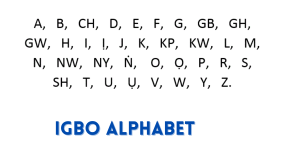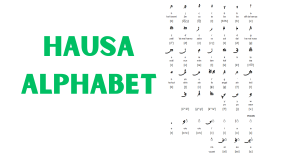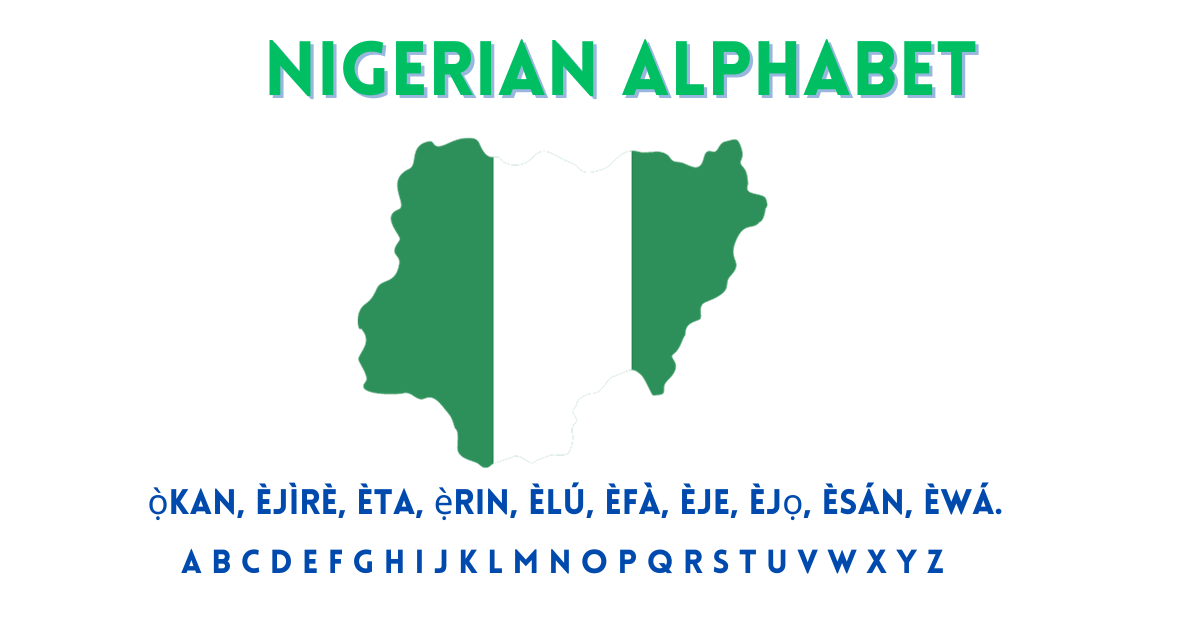Understanding the Nigerian alphabet
The Nigerian alphabet is a fascinating aspect of the country’s cultural and linguistic heritage. It comprises 26 letters of the English alphabet, with each letter representing specific sounds that are used in the Nigerian English dialect. However, the Nigerian alphabet also incorporates additional letters and characters to accommodate the phonetic nuances of local languages and dialects, making it a rich and diverse system of written communication.
The uniqueness of the Nigerian alphabet
The Nigerian alphabet, unlike the standard English alphabet, includes “Ɛ” and “Ɔ” for distinct vowel sounds in local languages, ensuring accurate transcription and alignment with spoken words. Diacritical marks and tone markers enhance the precision and clarity of written Nigerian languages, reflecting pronunciation and intonation intricacies.
Nigerian alphabet, a to z
Nigeria’s official language is English, with a standard Latin alphabet of 26 letters. This alphabet is used for government, education, business, and official communication. Indigenous Nigerian languages may have their own adapted Latin alphabet or additional characters for specific sounds.
A B C D E F G H I J K L M N O P Q R S T U V W X Y Z
READ THIS –Nigeria Student Loans President Tinubu Signs Bill into Law
Here are some English words commonly used in Nigeria:
- Agriculture
- Banking
- Culture
- Democracy
- Education
- Festival
- Government
- Hospitality
- Independence
- Justice
- Knowledge
- Leadership
- Medicine
- Networking
- Opportunity
- Petroleum
- Quality
- Religion
- Sustainability
- Technology
- Unity
- Vision
- Wildlife
- Xenophobia
- Youth
The cultural significance
The Nigerian alphabet is a symbol of Nigeria’s diverse cultural heritage, celebrating linguistic diversity through its use of local languages and characters. It serves as a unifying force, allowing individuals from different linguistic backgrounds to express themselves authentically, promoting linguistic inclusivity and understanding.
The Evolution of the Nigerian Alphabet
Over time, the Nigerian alphabet has evolved to accommodate the dynamic nature of language and communication. With the increasing influence of technology and globalization, the Nigerian alphabet has adapted to incorporate new terms, expressions, and linguistic conventions, ensuring its relevance in contemporary society. This adaptability underscores the resilience and vibrancy of Nigerian languages, reaffirming their place in the digital age.
Alphabets in Nigerian Languages:
- Alphabet used in Nigeria:
- Nigeria predominantly uses the Latin alphabet.
- Yorba Alphabet:
- Yorùbá doesn’t have its own distinct alphabet; it uses the Latin alphabet with diacritical marks.
- Igbo Alphabet:
- Igbo also uses a Latin-based alphabet with 36 letters, including 8 vowels and 28 consonants.
- Counting and Numbers in Igbo:
- Counting 1 to 100 in Igbo:
- 1 to 10: ọ̀kan, èjìrè, èta, ẹ̀rin, èlú, èfà, èje, èjọ, èsán, èwá.
- 16 in Igbo: ọgbụọ.
- 27 in Igbo: iri na iri na otu.
- Counting 1 to 100 in Igbo:
Igbo Culture and Identity:
- Igbo Language and Culture:
- Igbo has 8 vowels: a, e, i, o, u, ị, ọ, and ụ.
- Igbo States:
- There are five Igbo states in Nigeria: Abia, Anambra, Ebonyi, Enugu, and Imo.
- Oldest Igbo State:
- The Niri Kingdom is often considered one of the oldest among the Igbo states.
- The Igbo Tribe’s Origin:
- The origin of the Igbo people is not definitively traced to Egypt, and claims linking them to Israel are not universally accepted.
- Igbo Leadership:
- The first Igbo king or person may vary regionally. Nri Kingdom has historical significance in Igbo leadership.
- Biafra:
- Biafra refers to a region in southeastern Nigeria that sought secession during the Nigerian Civil War (1967–1971). It is not a separate country.
- Biafra and currency:
- Biafran had its own currency during the Civil War, known as the Biafran pound.
- Biafra’s Fate:
- Biafra’s secession attempt failed, leading to the reunification of Nigeria. Today, the term “Biafra” is often used in discussions about the Igbo people’s history and aspirations.
- Biafra Leadership:
- Odumegwu Ojukwu was a prominent leader associated with the Biafran Republic during the Civil War.
- Igbo Aspirations:
- Some Igbo individuals express aspirations for greater autonomy or self-determination, often rooted in historical and political considerations.
- Biafra Flag:
- The Biafran flag featured horizontal green, black, and red stripes.
- Biafra’s History:
- Biafra declared independence in 1967, leading to a civil war that ended in 1970.
- Biafra Today:
- Biafra is not a separate entity today; it remains part of Nigeria.
- Biafra and Nigeria’s Formation:
- Biafra was a secessionist state formed during the Nigerian Civil War.
READ THIS-A Beginner’s Guide to Nigerian Law Degree Practice In The Us
Preserving Linguistic Heritage
As Nigeria continues to embrace modernization and technological advancements, the preservation of the Nigerian alphabet is crucial for maintaining linguistic diversity and safeguarding cultural identity. Efforts to promote literacy in local languages and revitalize traditional writing systems contribute to the preservation of the Nigerian alphabet, empowering communities to uphold their linguistic heritage and pass it on to future generations.
Igbo alphabet

The Igbo alphabet, based on the Latin script, comprises 36 letters, including consonants and vowels, and is arranged alphabetically.
Vowels (9):
- a
- e
- i
- o
- u
- ị
- ọ
- ụ
- b
Consonants (27):
- ch
- d
- f
- g
- gb
- h
- j
- k
- kp
- l
- m
- n
- nw
- ny
- p
- r
- s
- sh
- t
- u
- v
- w
- y
- z
- gh
- kw
- ng
Yoruba alphabet
The Yoruba language uses a Latin-based alphabet consisting of 26 letters from the standard Latin alphabet, along with diacritical marks for specific sounds.

Here is the Yoruba alphabet:
- a
- b
- d
- e
- ẹ
- f
- g
- gb
- h
- i
- j
- k
- l
- m
- n
- o
- ọ
- p
- r
- s
- ṣ
- t
- u
- w
- y
- ỳ
- ỹ

- a
- b
- c
- d
- e
- f
- g
- h
- i
- j
- k
- l
- m
- n
- o
- p
- r
- s
- sh
- t
- u
- w
- y
- z
- Ɓ (B with a hook)
- Ɗ (D with a hook)
- Ƙ (K with a hook)
- Ɲ (N with a hook)
- Ƴ (Y with a hook)
Conclusion
The Nigerian alphabet, a symbol of the country’s rich linguistic and cultural heritage, exemplifies the dynamic nature of Nigerian languages and their enduring relevance in a rapidly changing world. Recognizing and celebrating the nuances of these diverse languages forms the foundation of Nigerian identity.
